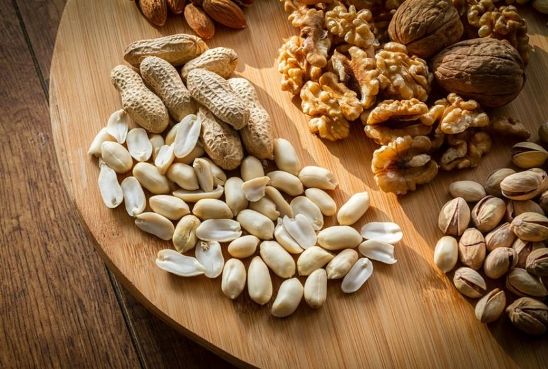Magnesium: Benefits and How to Consume It
Magnesium is one of the essential minerals for the proper functioning of the body, as important as calcium or iron. Magnesium is involved in primary functions such as calcium absorption, muscle relaxation, nervous system and heart function, neuromuscular transmission, or food metabolism.
The lack of magnesium results in symptoms such as fatigue, muscle cramps, muscle weakness, tachycardia or apathy. To maintain balanced levels, foods are the best source of magnesium.
Table of Contents
Benefits of Magnesium for Health
The importance of magnesium as a mineral is backed by the many health benefits:
- Reduce the risk of high blood pressure.
- Avoid contractures and muscle cramps.
- It improves the mood since magnesium is involved in the production of serotonin (wellness hormone).
- Help calm stress and all related physical symptoms such as stomach pain, irritable bowel syndrome, muscle tension, headaches and increased heart rate.
- It keeps bones and teeth healthy by helping to fix calcium and phosphorus, avoiding the risks of osteoporosis and cavities.
- Prevents the formation of kidney stones.
- Among the benefits of magnesium for women include reducing the period pain and promoting hormonal balance.
- During pregnancy, magnesium is also very important. Among others, it helps prevent premature birth.
- Thanks to its laxative effect it helps prevent constipation.
- It promotes digestion and the health of the intestinal flora.
- Help to prevent cardiovascular diseases.
- Intervenes in the production of collagen.
- Combats fatigue.
- Maintaining balanced magnesium levels helps to regulate sleep.
- Magnesium prevents diabetes.
How much magnesium to take every day?
The experts’ recommendation is to take 400-420 milligrams/day in the case of men and 310-320 milligrams/day in the case of women.
How to consume magnesium in the daily diet?
A diet rich in vegetables and unrefined grains is the best way to ensure the recommended daily intake of magnesium. It is present in a good number of foods that we can include in our daily diet:
- Green leafy vegetables (chard, spinach, broccoli, green beans …).
- Dairy products (cheeses).
- Fruits (bananas, strawberries, oranges, pineapple, dates…)
- Fish (hake, gilt-head bream, mullet …).
- Seafood and crustaceans (Norway lobster, prawns, clams, cockles).
- Nuts (almonds, peanuts, Brazil nuts, cashews, pistachios, hazelnuts).
- Seeds (pumpkin, sesame, flax, sunflower).
- Whole grains (wheat bran, oat bran or rice bran).
- Legumes (white beans, chickpeas, peas, beans).
- Ginger.
- Soybean meal.
- Dark chocolate.
Take magnesium supplements
Always consult your doctor before taking supplements or nutritional supplements (magnesium chloride, magnesium citrate), since it is important to know if we really need an extra contribution.
And the last format in which we find magnesium, specifically magnesium sulfate, known as Epsom salts, perfect for a relaxing bath.
